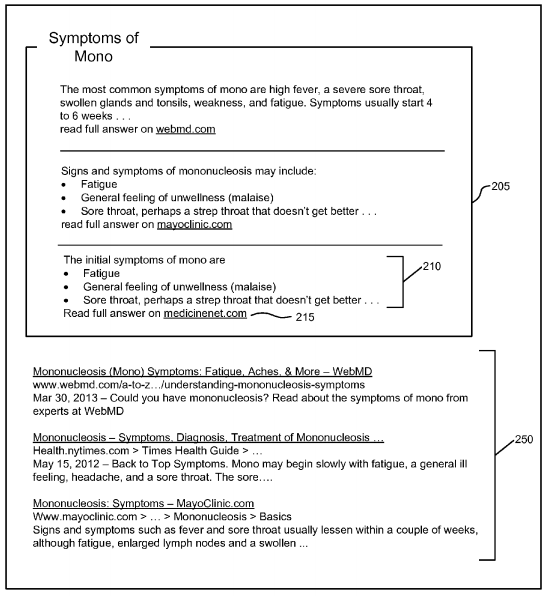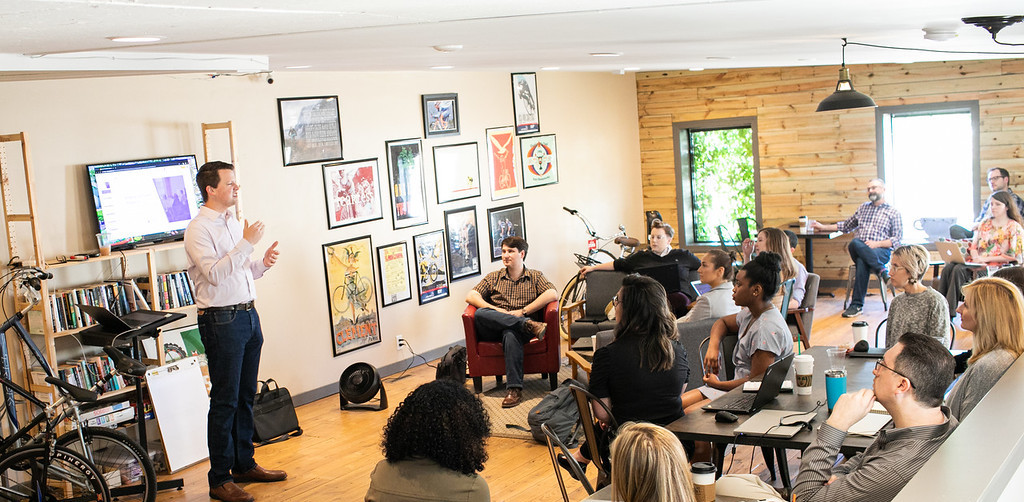New Google Patent: Is Google Storing Data to Replace Organic Search Results?!
Last week, the U.S. Patent Office approved Google’s latest patent for natural language search results for intent queries.
The very next day, Bill Slawski, of SEO By The Sea, and I were discussing an upcoming SEO Best Practices Series PDF on Featured Snippets when he tipped us off to the new patent. (Note how I casually name-dropped Bill Slawski like we’re old friends.)
At first blush the patent is the latest in Google’s drive to interpret queries and deliver answers in natural, human language. But is it also one more step toward eliminating organic search results all together?

The End of Organic Search Results?
One conversation that keeps popping up is how long Google is going to remain a search engine, before it can become a “knowledge” engine, and Google’s latest patent might be another brick in that wall.
- 2014 Rand Fishkin predicted search results with no external, organic listings might start popping up in 2014. He was, of course, happy to have been wrong, but may just have been a little head of his time.
- 2015 Smartphone virtual assistants and IoT devices like the Apple Watch respond to simple, natural language search queries with simple, spoken answers. No source is cited in the speech, and no link is made to fit the tiny Watch screen.
- 2016 Google’s patent reveals plans for a new data store.
… a system may parse a document from an authoritative source to generate at least one heading-text pair, the text appearing under the heading in the document. The system may assign a topic and a question category to the heading-text pair and store the heading-text pair in a data store keyed by the topic and the question category.
Google prefers providing its own answer to clear intent queries whenever it can, to “provide a better user experience” … and to keep users on their SERPs longer (because ad revenue). They started doing this with the Knowledge Graph, but that data is largely curated by real, live humans and they simply cannot keep up.
Featured snippets started to appear. They required Google to recommend users to another page, but at least provided the same great user experience as an answer box or Knowledge Graph panel when Google’s data bank couldn’t provide a clear answer. After some initial caution, SEOs are now clamoring to optimize content to try to appear in those featured snippet spots – conforming content to the mold that Google has created.
And now we know that Google is parsing and storing that information in a separate data bank—a kind of algorithmically assembled Knowledge Graph.
Might it be that Google is storing and aggregating data—data that content creators are generously formatting for them—in order to expand their answer box offerings? Will they continue to provide organic results if those results become obsolete? As mobile internet usage continues to climb, and IoT devices remove screens from the equation entirely, will users even care if organic listings disappear? Do they want options or answers? The trend has been swinging toward answers for years.
What’s an SEO to Do? 2 Strategies for the Immediate Future
Same thing we always do: roll with the punches.
First, keep focusing on featured snippets. The new patent does not, of course, say anything about removing organic results from SERPs. (The internet would explode.) One sketch of how the natural language search will change SERPs shows an expanded featured snippet box at the top of the page:

Where there is currently one featured snippet, there are three in this example. That means two things for your SEO strategy:
- It will be easier to get in the box. If three Page 1 results get featured instead of one, your chances improve.
- It will be more important to get in the box. If three Page 1 results get featured instead of one, the regular snippets will get pushed much further down the page. On SERPs with a full four ads on top, the #1 organic spot will easily be below the scroll—and multiple scrolls down on mobile.
Second, keep building your own audience. Coordinate your social channels and build your email list. If Google ever does get rid of organic search results, you’ll need to be able to connect with your audience on other channels.
What's Next?
Profound Strategy is on a mission to help growth-minded marketers turn SEO back into a source of predictable, reliable, scalable business results.
Start winning in organic search and turn SEO into your most efficient marketing channel. Subscribe to updates and join the 6,000+ marketing executives and founders that are changing the way they do SEO:
And dig deeper with some of our best content, such as The CMO’s Guide to Modern SEO, Technical SEO: A Decision Maker’s Guide, and A Modern Framework for SEO Work that Matters.




